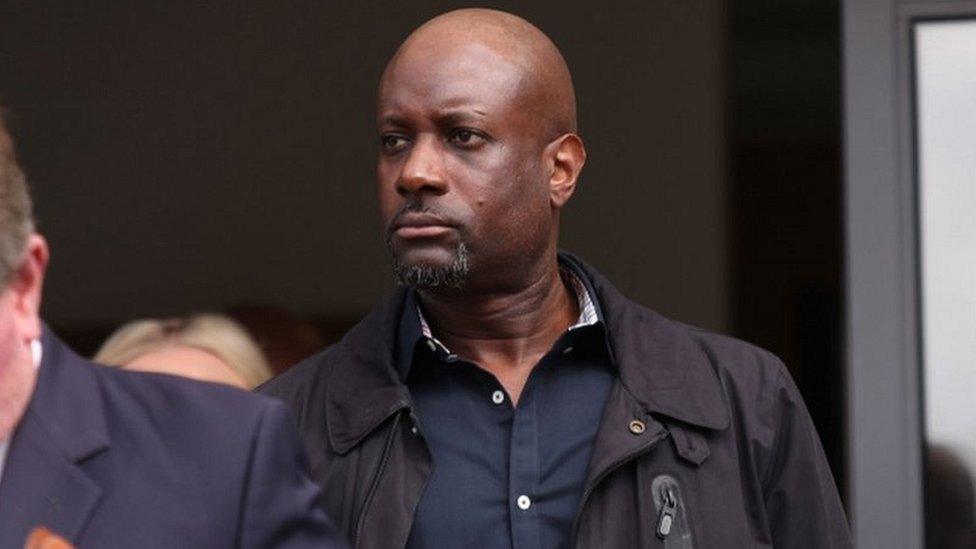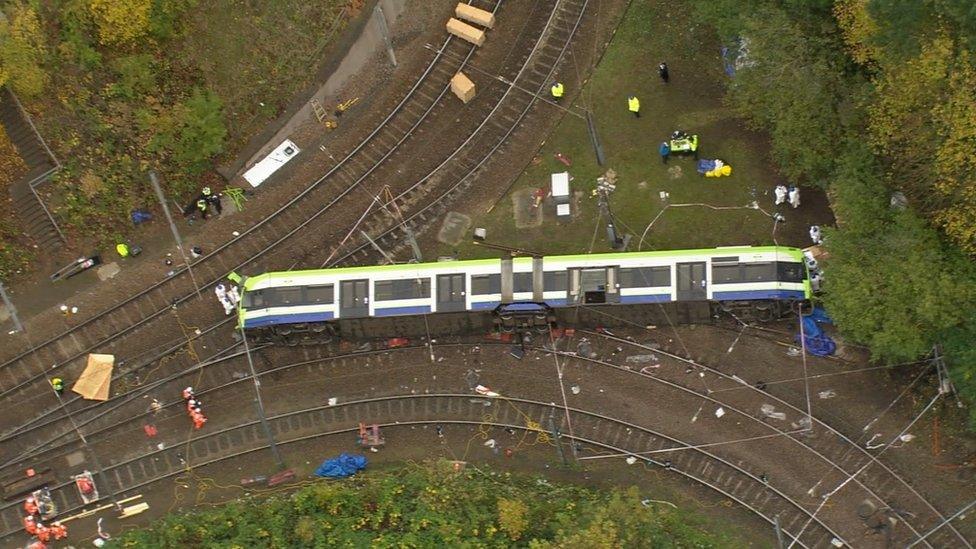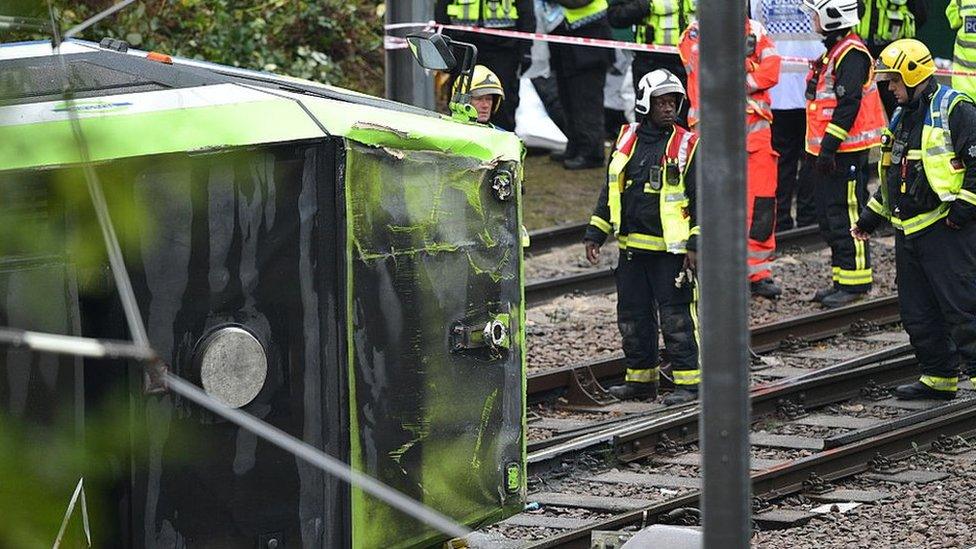Croydon tram crash: Passengers flung before fatal impact, trial told
- Published

Tram driver Alfred Dorris denies a single charge of failing to take reasonable care at work
Passengers were "flung around" as if in a washing machine during a tram crash in Croydon that killed seven people, a court has heard.
Sixty-one passengers were also injured, 19 seriously, when the tram derailed in south London on 9 November 2016.
The Old Bailey heard passengers were flung about when the driver attempted a curve at more than three times the speed limit.
Alfred Dorris, 49, denies a single charge under the Health and Safety Act.
Mr Dorris, from Beckenham, south-east London, is accused of failing to take reasonable care at work.
The court heard that Mr Dorris had an "impeccable" past record and was seen as one of the better drivers.
The seven passengers who were killed were Dane Chinnery, Donald Collett, Robert Huxley, Philip Logan, Dorota Rynkiewicz, Philip Seary and Mark Smith.
On the approach to Sandilands, drivers are instructed to reduce speed to 20km/h to safely negotiate a sharp left turn, with a sign on the bend confirming it, jurors heard.

Seven people were killed when a tram derailed near to Sandilands in November 2016
But prosecutor Jonathan Ashley-Norman KC told the court, "instead, the tram was travelling at in excess of 70km/h when it entered the turn", tipping over on to its side and, "causing those inside to be flung around as though, as one survivor put it, they were inside a washing machine".
The court heard there was no dispute that the driver was responsible for what happened.
But Mr Ashley-Norman KC told the court: "Mr Dorris was not solely responsible for health and safety failures at Sandilands.
"As we shall hear, others, principally Transport for London (TfL) and Tram Operations Limited (ToL), also failed in the discharge of their health and safety duties in the running of the Croydon tram network. However, their failures do not exonerate Mr Dorris."
Mr Ashley-Norman KC alleged it was an "accident waiting to happen" as both TfL and ToL failed to do a risk assessment around the possibility of a derailment at the Sandilands junction.
The prosecutor told jurors: "Though any one of his colleagues might have failed in the same way, nonetheless it was Mr Dorris who failed."

The prosecution described the situation as "an accident waiting to happen"
Mr Ashley-Norman KC said Mr Dorris would claim that "environmental and external factors outside his control", relating to the infrastructure around the Sandilands area, combined to cause him to become "disorientated".
The prosecutor said jurors would examine some of those factors, such as the signage on the approach to the bend and tunnel lighting.
'Crept up on me'
The court heard that in his interview following the crash, Mr Dorris said: "I just remember coming over all disorientated like I just weren't sure, you know, where I was. I was confused and then I got it in my head I was going eastbound towards Lloyd Park direction.
"I was upset, confused, you know, traumatised. I weren't sure what, to be honest with you, I wasn't sure what actually happened. It just sort of crept up on me."
Mr Ashley-Norman KC told jurors they would hear evidence from sleep experts suggesting Mr Dorris may have had a "micro-sleep".
But he said the issue was not whether the driver fell asleep, but whether he took reasonable care for the health and safety of his passengers.
The trial at the Old Bailey is set to last for up to five weeks.

Analysis
By BBC London Transport Correspondent, Tom Edwards
The families of those who died in the Croydon tram crash were in court again this morning.
More than six years ago on a cold, wet, or as the prosecution described it, ugly November morning they lost their loved ones and still many of them have unanswered questions.
After six years, they still want to know why what should have been a typical commute ended in the tram overturning at speed. It will be another gruelling ordeal for the families, many of whom will again sit through five weeks of evidence.
With a quiet dignity, many of them sat through every day of the previous inquest.
They are here because they hope they can get some answers.

Follow BBC London on Facebook, external, Twitter , externaland Instagram, external. Send your story ideas to hellobbclondon@bbc.co.uk, external
Related topics
- Published8 July 2022
